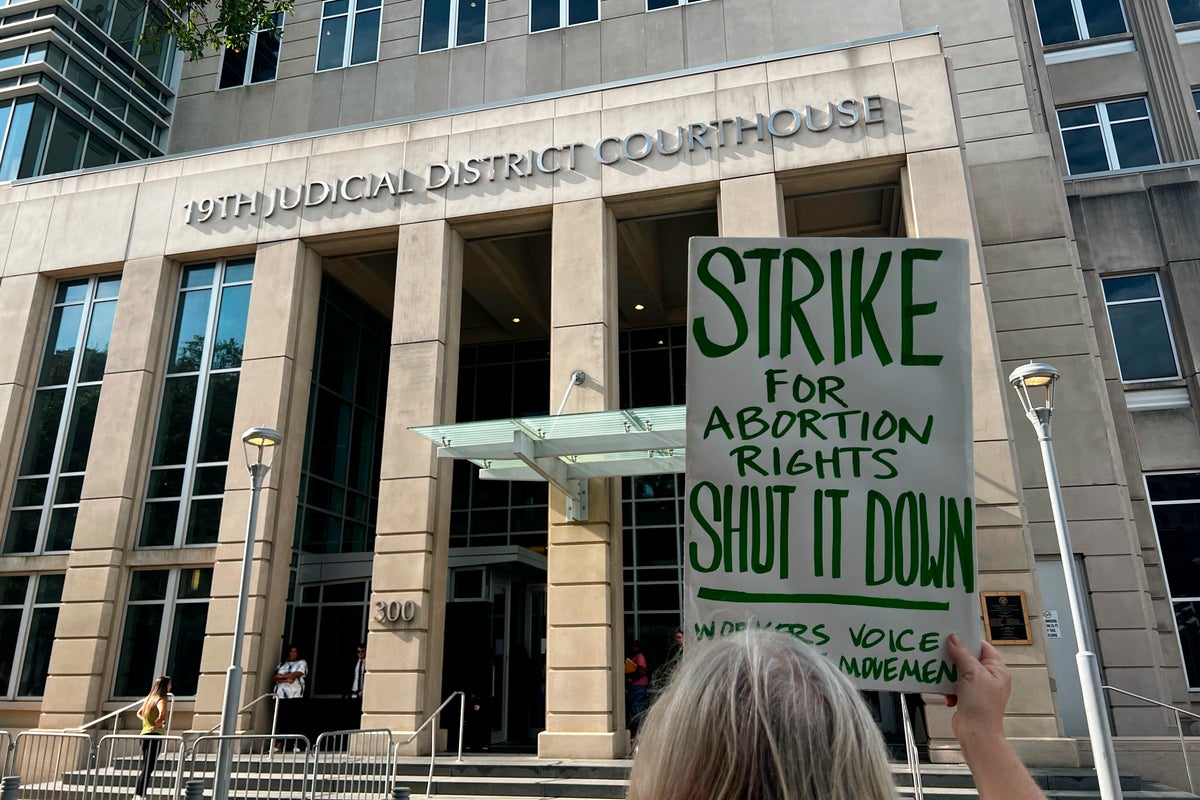
Louisiana’s anti-abortion “trigger” laws have once again been blocked by a judge, allowing abortion care to resume in the state – for now – following the US Supreme Court’s decision to strike down constitutional protections for abortion care.
While a legal challenge plays out in court, a state district judge in Baton Rouge has allowed a temporary restraining order to remain in place that blocks enforcement of so-called “trigger” laws that outlaw abortion in the state without protections affirmed by Roe v Wade.
Judge Donald Johnson’s ruling on 19 July prohibits Republican state attorney general Jeff Landry from enforcing the ban for another 10 days.
Mr Landry, meanwhile, has called on the state’s treasurer to deny any funding that will “directly benefit” New Orleans after city officials pledged not to prosecute providers or pursue criminal anti-abortion cases under the ban, which does not make any exception for abortion for pregnancies from rape or incest.
He said the city is in “open defiance of the will of the people of Louisiana.”
In a court filing from abortion rights advocates challenging the state’s anti-abortion laws, a New Orleans doctor explained how her hospital’s lawyer told her that she could not perform a common form of abortion during her pregnant patient’s medical emergency, underscoring the legal chaos following the Supreme Court ruling.
Dr Valerie Williams said she treated a patient whose water broke at 16 weeks of pregnancy, several weeks before the fetus is viable outside the womb, and requested a dilation and evacuation, or D&E procedure, to remove the fetus.
The lawyer said that performing the procedure – after abortion was outlawed in the state, under the repeatedly shifting parameters of legal care in the fallout of Roe v Wade’s demise – would put the hospital into legal jeopardy, according to Dr Williams.
“There was no way for the pregnancy to continue without putting the patient’s health at risk, as the fetus was already starting to deliver,” according to Dr Williams. “Going back into that hospital room and telling the patient that she would have to be induced and push out the fetus was one of the hardest conversations I’ve ever had.”
Her patient “was forced to go through a painful, hours-long labor to deliver a nonviable fetus, despite her wishes and best medical advice,” she explained in an affidavit.
The woman lost nearly one liter of blood, according to Dr Williams.
“She was screaming – not from pain, but from the emotional trauma she was experiencing,” she wrote.
Judge Johnson initially granted a temporary restraining order on 12 July, days after a New Orleans judge dissolved the restraining order as a procedural matter after the case moved jurisdictions from New Orleans to Baton Rouge. The judge in New Orleans blocked the state’s ban four days after the Supreme Court’s decision in Dobbs v Jackson Women’s Health Organization on 24 June.
Following the ruling, at least eight states – Alabama, Arkansas, Mississippi, Missouri, Oklahoma, South Dakota, Texas and Wisconsin – have outlawed abortion entirely in nearly all instances.
As many as 26 states could outlaw abortion without protections affirmed under Roe as legal challenges play out. Republican-led state legislatures are poised to draft more-restrictive laws in the coming weeks and months.
Earlier this year, Louisiana’s anti-abortion Democratic Governor John Bel Edwards signed into law an anti-abortion measure that makes no exception for pregnancies from rape or incest.
The measure imposes a prison sentence of up to 10 years and up to $10,000 in fines for convicted abortion providers or anyone found guilty of performing an abortion. An abortion performed later in the pregnancy could result in a 15-year prison sentence as well as a minimum $20,000 fine.
On Monday, a judge in West Virginia blocked enforcement of the state’s 150-year-old abortion ban. Temporary restraining orders are blocking similar anti-abortion laws in Kentucky and Utah while their legal challenges make their way through courts.







